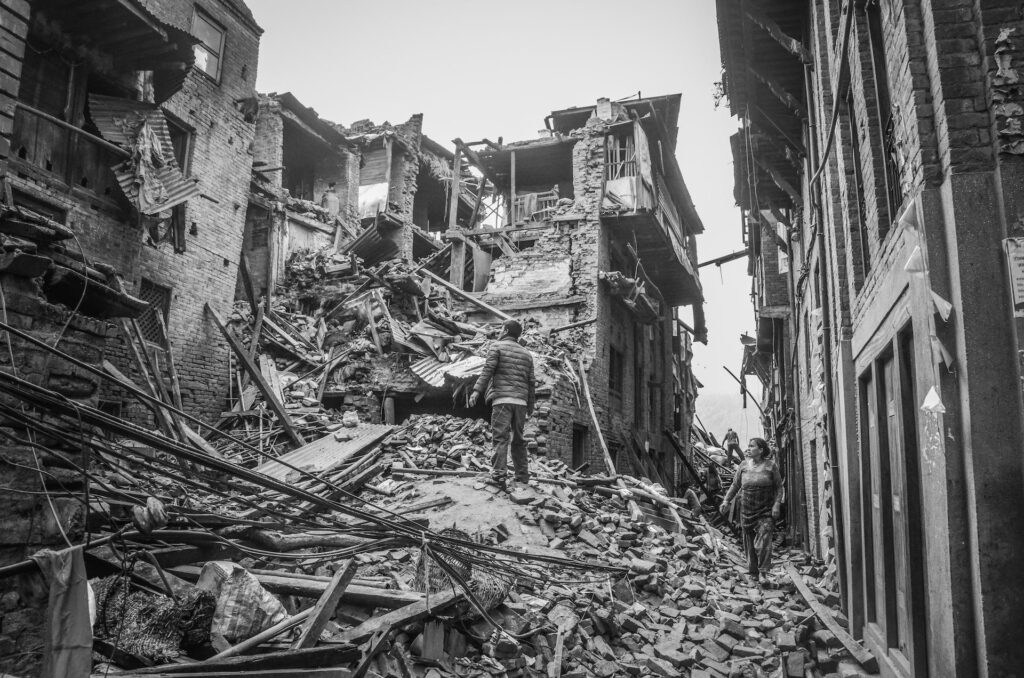I have been working psychotherapy with asylum-seekers immigrants and refugees since my clinical training year at the Bellevue Program for Survivors of Torture in New York City. As I would come to learn in the years following this experience, our clinic and others like it were of interest to researchers from various fields such as medical sociology, anthropology, psychoanalysis, and psychology.
Providing aid, especially mental health care, to refugees and asylum-seekers forced us to deeply question our western context with its attendant privileges, assumptions, and power asymmetries—something not routinely taught in psychology or mental health curriculums. It increasingly seemed to me that only a multidisciplined approach would allow us to examine ourselves in our roles and contexts before we could be of greater service to our clients.
My psychotherapy work with asylum-seekers awoke me to my individual power as a therapist and the way I could impact another person’s fate. For the people I worked with, the danger and loss were more real to them than I could have imagined, yet the asylum process was such that they depended on me to legitimize their fears and give voice to their suffering.
The clients I worked with had not encountered a scenario like the psychotherapy session before and it was challenging to explain what I was doing or how it could be personally useful to them. There was a contextual gulf between us, where few assumptions existed, and I found this incredibly interesting and important as a lifelong critic of my field.
Building Critical, Socio-Political Intention Into Practice
As psychologists-in-training, our clinical experiences and close therapeutic connections to immigrants who had experienced torture required us to expand our worldview and develop a historically and politically contextualised sense of what brought us into contact with one another in the first place. What were the local and global political conditions that led to our clients being persecuted? Also, what drew us personally and culturally, like many other westerners, toward humanitarian aid work?
I essentially began my dissertation research during this Obama-era clinical year—focusing on just my colleagues and eventually contacting people at clinics across the United States. Many clinicians shared the feeling of being conceptually ill-prepared to understand the socio-political forces that brought an asylum-seeker into our therapy rooms.
Furthermore, would our clinical training really prepare us to work with individuals who did not share the same assumptions about mental health or have a frame of reference for a psychotherapeutic relationship? Could we readily apply concepts like Posttraumatic Stress Disorder (PTSD) to our clients or was it possible that these too were western paradigms that didn’t translate to all human beings?
PTSD and Narrative Creation
Is PTSD translatable across contexts? What role does western nosology play? These were the very questions that both intellectuals and critical, “on-the-ground” humanitarian aid workers were asking.
People from highly resourced countries want to offer their services, but often reify western paradigms in doing so despite evidence that these constructs aren’t actually translatable to non-western contexts – non-applicable to psychotherapy with asylum-seekers. (The interested reader can look up humanitarian aid workers like Dr. Didier Fassin Critique of Humanitarian Reason, 2012 and Dr. Paul Farmer).

It’s useful to begin with a rudimentary contextualization of an asylum-seeker or refugee’s experience, namely looking at pre-migration experiences (including torture, threats to life, forced displacement, LGBTQ intolerance, etc.), the possible trauma of the flight itself (traveling through more conflict-ridden zones, risk of drowning if traveling by boat, lack of water and food, etc.) and the difficulties in the host country (including family separation, discrimination, poor living conditions, social isolation, language barriers, etc.).
Each phase of the experience should be considered by anyone working with a refugee or asylum-seeker. For those coming from a western paradigm, it might feel obvious and natural to label experiences during any of these three phases as “trauma,” but Fassin and Farmer warn us for example, that the application of the term trauma swiftly changes the course of the immigrant’s narrative—in a way pre-empting the asylum-seeking immigrant or refugee from creating their own narrative amidst tremendous personal and social upheaval.
I hope that by broaching these basic questions I have provided the mental health clinician with a sense of the critical lens needed to do meaningful psychotherapy work with asylum-seekers and refugees. It is a call to build critical, socio-political intention into one’s work, in other words to “make space” for the client’s own narrative by positioning ourselves and our mental health practice within our western context.
We need to guard against the assumption that within a global context our stance is neutral or scientifically factual. These questions can widen our perspective and make us the critical clinicians we need to be to best serve our clients with asylum or refugee backgrounds.
Further reading
Experiences of psychotherapists working with refugees in Germany: a qualitative study
